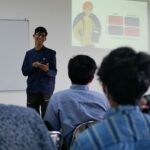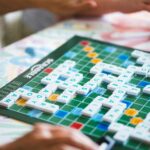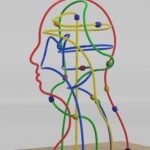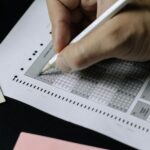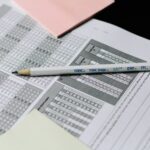NPR Education discusses Nobel Laureate Carl Wieman’s recommendation that universities and colleges need to revise the ways they teach students. Relying on lectures is simply not reliable, nor is it a pathway for student understanding and success. Wieman states that... View Article
Latest Posts
Photo by Bermix Studio on Unsplash. Following the unprecedented growth of technology into all levels of the education system, it is important to take a step back to review and evaluate the changes that have occurred throughout this time. Sanjay... View Article
In a bilingual Canada, many view a second language as an essential component of good education. Hence, many parents rush to enroll their children in French programs. However, concerns arise when the overwhelming popularity of French immersion programs phase out... View Article
Photo by James Harrison on Unsplash. President Obama believes that teaching children how to code is an important step in training them for jobs of the future. However, as Byrd Pinkerton writes in NPR Ed, learning about computers isn’t limited... View Article
The proposed 2017 US budget includes a three-year, $4B “Computer Science for All” initiative. President Obama wants to ensure that everyone, especially girls and minorities, have the chance to learn. Michelle Meyers explores this initiative in her article. Photo by... View Article
An article by Natasha Singer in the New York Times explores the expansion of school startups into the corporate world. Despite the thousands of educational apps and products that exist to enhance student learning in elementary and high school classrooms,... View Article
Students learn best with a variety of techniques and approaches. Human connection, the ability to connect and engage students, is a timeless staple of good teaching. With the growth of technology, schools are starting to infuse human connections into their... View Article
This article in The Globe and Mail describes how Canada may be losing its relatively strong AI community to the US. Photo by Igor Omilaev on Unsplash. In the past, Canada has developed many top AI algorithms and tools. For... View Article
Photo by Aedrian Salazar on Unsplash. A second language may be good for your health. A new study shows that bilingual patients are more likely to recover from a stroke, which results when lack of blood flow to the brain... View Article
The wealth of information available through technology acts as a crutch and results in the deterioration of memory. A study of 6,000 adults residing in Europe found that over a third of participants relied on technology as their first source... View Article
The Register’s Simon Sharwood discusses whether the use of technology truly improves student achievement. Photo by Anastassia Anufrieva on Unsplash. Following the release of the Programme for International Student Assessment (PISA) scores in 2012, the Organisation for Economic Co-operation and... View Article
The growing presence of technology in education allows schools to develop new and innovative approaches to student learning. One of the new methods is called “flipped learning.” Liam Casey explores this method of learning in this article. How it works... View Article
Photo by Phil Hearing on Unsplash. In a stunning turn of events, Nigel Richards, it turns out that the new French Scrabble champion, can barely speak a word of French. In preparation for his participation in the World championship for... View Article
In a Berkeley News article, Yasmin Anwar examines the role sleep plays in long-term memory and the development of Alzheimer’s disease. Poor sleep may cost you more than a few extra dollars on another cup of coffee. It may cost... View Article
An article by Adam Shaw in the BBC explores whether brain-training exercises are really the hoax people claim they are. While brain-training has received a lot of criticism in the past, including a 2009 BBC study suggesting they are “no... View Article
Success Academy experienced its humble beginnings in 2006, as a charter school in Harlem for economically disadvantaged students who could not attend the wealthier elementary schools because they lived outside the appropriate school zone. It provided these students with the... View Article
Photo by Markus Spiske on Unsplash. Writing in The New York Times, Benedict Carey identifies some areas in which perceptual learning has been applied: visualizing high-dimensional genetic data (e.g. as has been done, at least implicitly, at the Albert Einstein... View Article
An article in the Economist brings into question the actual value of a university degree, a seemingly popular commodity in modern society. In recent years, a degree has become synonymous with “a decent job and an entry ticket to the... View Article
In an NYmag article, Anya Kamenetz suggests too much faith is being placed on standardized testing in the US educational system, as these appear to be an incomplete measure of student intelligence. MIT neuroscientists alongside researchers at Harvard and Brown... View Article
Writing in the Washington Post, Valerie Strauss criticizes the US Department of Education’s overbearing reach into classrooms with policies and programs that provide no real benefit to teachers or students. Federal programs, such as Race to the Top and NCLB... View Article
